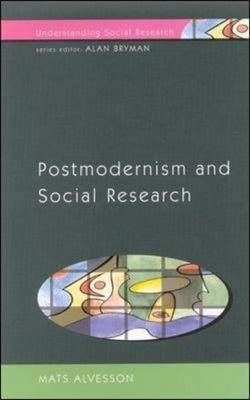* What is postmodernism?
* How can it be used to develop social research?
* How can we do social research in more creative ways?
This book integrates philosophical and theoretical ideas with fieldwork and supports the development of research methods with a sharper interpretive and self-critical edge. It provides an overview of postmodern themes, evaluates the possibilities and dangers of postmodernist thinking and develops ideas on how a selective, sceptical incorporation of postmodernism can make social research more conscious about problems and pitfalls, and more creative in working with empirical material (so called 'data'). A reflexive orientation runs throughout the book, which addresses themes such as how to understand the individual in research, how to deal with the knowledge/power connection, how to relate to language and how to unpack rather than take for granted socially dominant categories in research work. One chapter addresses the research interview in the light of postmodernist concerns about the naivity of assuming that the interviewee is simply an informant, a truth-teller authentically expressing his or her experiences and meaning. Other chapters address issues of voice, interpretation, writing and reflexivity. The book includes a range of empirical illustrations of how postmodernist ideas can inspire social research, and in all it represents an essential text for students and researchers alike.
Åtkomstkoder och digitalt tilläggsmaterial garanteras inte med begagnade böcker





















